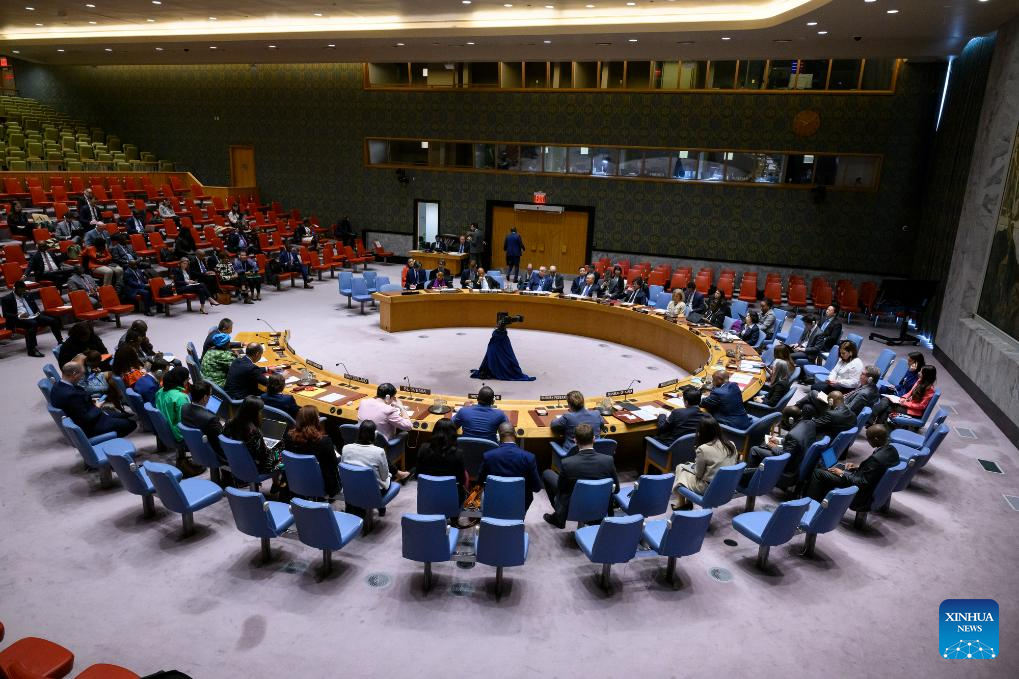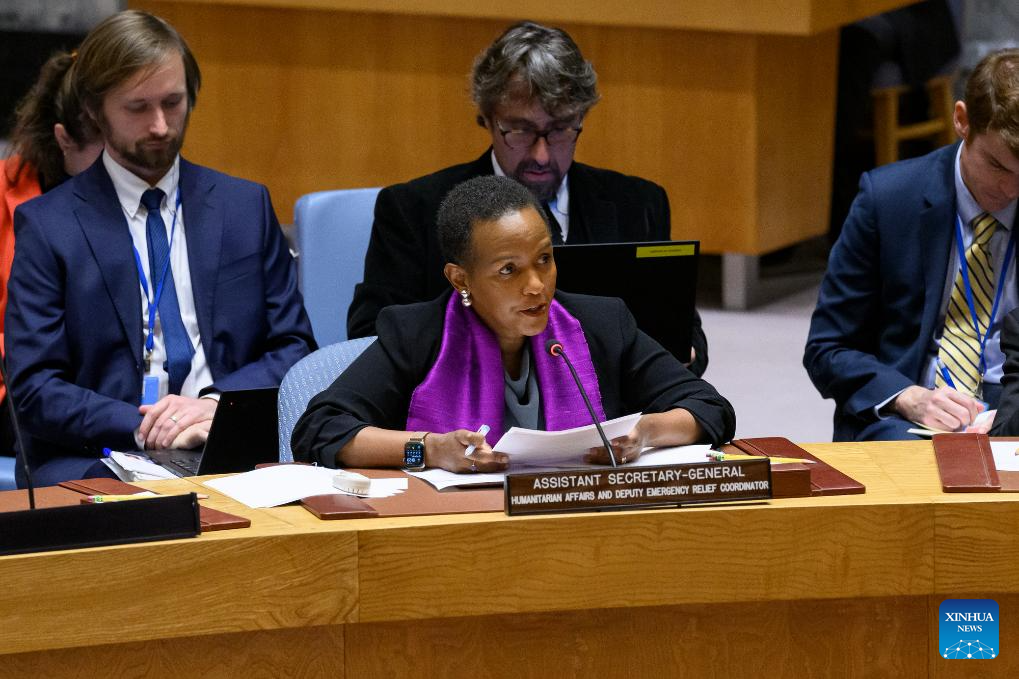
The UN Security Council holds a meeting on the situation in the Great Lakes region at the UN headquarters in New York, on April 24, 2024. The eastern part of the Democratic Republic of the Congo (DRC) is one of the most dangerous places in the world for women and girls, said Joyce Msuya, UN assistant secretary-general for humanitarian affairs, on Wednesday. (Loey Felipe/UN Photo/Handout via Xinhua)
UNITED NATIONS, April 24 (Xinhua) -- The eastern part of the Democratic Republic of the Congo (DRC) is one of the most dangerous places in the world for women and girls, said Joyce Msuya, UN assistant secretary-general for humanitarian affairs, on Wednesday.
In the overcrowded camps around Goma, often with no lighting, no privacy, inadequate hygiene facilities, and minimal safety measures, women and girls are exposed to atrocious levels of abuse, she told the Security Council.
Reported cases of gender-based violence in the DRC have soared from 40,000 cases in 2021 to 78,000 in 2022. In 2023, this number reached 123,000, an increase of more than 300 percent in three years. And it continues to rise, she said in her briefing on the situation in the Great Lakes region on behalf of UN Undersecretary-General for Humanitarian Affairs Martin Griffiths.
Tragically, underreporting and limited resources for survivor services mean the real numbers are likely far higher, she added.
The link between gender-based violence and the escalating conflict is unambiguous: two-thirds of all cases have occurred in the three eastern provinces of North Kivu, South Kivu and Ituri, said Msuya.
The conflict has led to a significant increase in the dangers for children. This includes the recruitment and use of children -- predominantly boys -- by armed groups, as well as abduction, killing, maiming and sexual violence against children, she said.
Families are being forced into actions of last resort, including early and forced child marriage. Today, 37 percent of girls in the DRC are forcibly married before the age of 18, she said.
Furthermore, the closure of at least 772 schools in 2023 has deprived more than 300,000 girls and boys of education, with lasting impacts on them and the future of their country, she said.
The DRC is the most food insecure country in the world, with close to one in four Congolese -- or 23.4 million people -- experiencing acute hunger. There are also massive levels of displacement. More than 7.2 million people are now internally displaced. Between December 2023 and March 2024 alone, this increased by an alarming 700,000 people, said Msuya.
The repercussions of the conflict in the DRC extend well beyond its borders. Around 1 million people have now sought refuge in neighboring countries. More than half are in Uganda. Any further escalation in conflict would be extremely concerning for a region already grappling with numerous challenges, including the spread of measles and cholera, and abnormal weather, she warned.
Msuya said the humanitarian operation in the DRC is dangerously overstretched as funding is woefully inadequate. The 2.6 billion U.S. dollars required to reach 8.7 million people in the DRC in 2024 is only 16 percent funded.
The people of the DRC are being pushed to the brink of catastrophe by overwhelming challenges. Urgent steps must be taken to resolve the conflict and avoid further deterioration of the situation in the DRC and across the region, she said. "After so many years, people in the DRC -- and in the Great Lakes region -- deserve the opportunity to live in peace and to build the safe, secure and prosperous lives that this richly abundant region promises." ■

Joyce Msuya (C, Front), UN assistant secretary-general for humanitarian affairs, speaks during a Security Council meeting at the UN headquarters in New York, on April 24, 2024. The eastern part of the Democratic Republic of the Congo (DRC) is one of the most dangerous places in the world for women and girls, said Joyce Msuya on Wednesday. (Loey Felipe/UN Photo/Handout via Xinhua)



